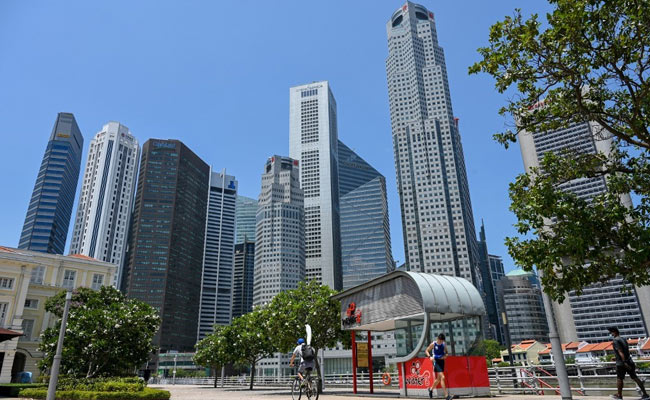
How Singapore tech layoffs are impacting Indians? Facebook’s parent company, Meta, announced that 13% of its global workforce, or about 11,000 employees, would be let go. It’s the 18-year-old social media behemoth’s first round of mass layoffs.
Singapore’s Asia Pacific headquarters were also affected. Media reports suggested that up to 100 of the estimated 1,000 workers here, the majority of whom are software engineers and other tech professionals, may have been impacted.
According to data from the Singapore Ministry of Manpower for 2021, approximately 45,000 of the 177,100 holders of employment passes are from India. The highest qualified foreign professionals who are permitted to work in the nation are those who hold employment passes and must make at least SGD 5,000 (USD 3,700) per month. There is no doubt that many of these are impacted by the layoffs at Meta as well as other tech-related redundancies.
In response to slow consumer spending, rising interest rates, and inflation, technology companies around the world, including in Singapore, a significant tech hub where many of the tech giants have their regional headquarters, are freezing hiring or downsizing.
The parent company of Shopee and Garena, publishers of games like League of Legends and Free Fire, and Sea Limited, a Singapore-based gaming and e-commerce powerhouse, made two rounds of cuts and revoked job offers in June and September. According to the main company’s most recent annual report, Sea had 67,300 employees as of the end of 2021, more than doubling the number from the year before.
How is the Singapore tech layoffs mainly affecting?
The company reduced its overseas footprint and peripheral businesses in an effort to increase profitability by strengthening its position in its key markets and core products after posting a net loss of USD931 million in the second quarter of this year, amid rising borrowing costs and a slowing global economy.
Although the company kept the number of job cuts a secret, it is believed that hundreds of people will lose their jobs at its offices worldwide, including those in Singapore.

According to Jessica Huang Pouleur, a partner at venture capital firm Openspace, “Last year, a lot of what had happened was a lot of cheap capital in the current market flooded the market (which) allowed companies to grow really at any cost.” “People were hired very quickly, in fact. You just throw people at your problem because you have one. I believe that over the course of the upcoming few months, we’ll probably see more of it.”
The Singapore-based digital wealth manager StashAway, which let go of 31 employees, or 14% of its workforce, and the currency exchange Crypto.com, which let go of 260 employees, or 5% of its Singapore workforce, are two Southeast Asian businesses that reduced their workforces in the middle of the year. In the meantime, the Malaysian online retailer iPrice laid off 250 employees, or 25% of its workforce, and the Indonesian education technology firm Zenius laid off more than 200 workers.
Twitter and the start-up for digital payments Stripe were two businesses that cut staff in their Singapore offices in November.
On November 3, Stripe announced that it would cut 1,000 global jobs, or 14%, from its workforce. After the layoffs, Stripe will employ around 7,000 people. A few jobs in Singapore were affected.
A week after Elon Musk’s takeover, Twitter cut about 3,700 jobs, or half of its global workforce. People working in the Singapore office also experienced this. The engineering, sales, and marketing teams’ employees were among those impacted, according to Singapore’s Straits Times.
Due to a decrease in venture capital funding levels this year, startups in the area were particularly negatively impacted. In the first quarter of 2022, funding in the region decreased by 7% to USD36.3 billion from the same quarter the previous year, according to a Crunchbase report.
As a result of people spending more time at home due to the COVID pandemic and developing habits that increased demand for online services, many tech companies experienced rapid growth. Some of these behaviors have changed as consumer behavior started to normalize following the lockdowns. All tech companies are under pressure as a result of this, as well as inflation and rising interest rates. The recent decline in share prices of major tech companies is referred to as an overdue correction by some.
While short-term market volatility and effects on revenue and employment in the tech sector are expected, long-term growth is anticipated for the sector.
According to a recent article by consulting and recruitment expert Mercer, the demand for tech talent and jobs in Asia continues to outpace supply.
The mere starting salaries for graduates with a computing degree are cited by Mercer as supporting evidence. When comparing Mercer’s data from 2018 and taking into account how long it typically takes one cohort to complete an average degree course in most places, there has been significant growth, which has been primarily driven by massive hiring in emerging tech markets like Vietnam (up 59%), as well as lower-tier Chinese cities (22 per cent increase).

Asia’s economies are also evolving toward greater digitalization. The internet economy in Southeast Asia is expected to double to USD363 billion by 2025, surpassing the previous prediction of USD300 billion, according to current research from Google, Temasek Holdings, and also Bain & Co. Dr. Natalie Pang told Channel NewsAsia that there are always “periods of major adjustments and corrections” in the tech sector, like the “dotcom bubble” in the late 1990s and early 2000s. At the National University of Singapore’s Centre for Trusted Internet and Community, Dr. Pang serves as the director of research.
“During the last two years of the pandemic, widespread adoption of tech at work and also at home drove significant growth for the industry, but the post-pandemic era has mainly highlighted the need to adjust and correct,” she continued. “Given the recent layoffs, I’d say that technology is going through a significant period of adjustment.”
Following the discovery of numerous instances of forged documents and fake experience letters, Cognizant India and Accenture India began to lay off employees.
Global technology behemoths are on a hiring binge. In response to slow consumer spending, rising interest rates, and global inflation that is outpacing local inflation, IT companies are either freezing hiring or downsizing.
On November 9, Meta CEO named Mark Zuckerberg announced that the company would be laying off about more than 11,000 workers, or 13% of its global workforce.
According to media reports, up to 100 of India’s estimated 1,000 employees—mostly software engineers and also other tech professionals—have been impacted.
Twitter, a social media platform, was also one of the businesses that cut jobs across their international offices, not just Meta. A week after Elon Musk took over, Twitter announced on November 4 that it would cut half of its global workforce, or about 3,700 workers.
After the country’s layoffs started, Twitter reportedly fired the entire marketing and communications team in India. 180 out of the 230 employees in the marketing, communication, and other departments in India are alleged to have been fired by the microblogging platform.
According to a November 14 Platformer article, Twitter is also alleged to have fired nearly 4,400 of its contract employees. It also stated that 4,400 of Twitter’s 5,500 contract employees learned they had been let go after losing access to Slack and some other work systems.
According to a report in the Straits Times, Twitter’s engineering, sales, and marketing teams were among those affected in Singapore as a result of layoffs.
As it works to bring the Disney+ streaming service to profitability against the backdrop of economic uncertainty, Walt Disney also announced on November 14 that it would freeze hiring and eliminate some positions, according to a memo seen by Reuters.
Disney’s top executives received a memo from Chief Executive Bob Chapek in which he announced that the company would implement a targeted hiring freeze and plan “some small staff reductions” in an effort to control costs.
Additionally, according to an ETNow report, Cognizant India reported a 6% involuntary attrition rate from July to September.
Following the discovery of numerous instances of forged documents and fake experience letters, Cognizant India and Accenture India both announced layoffs.
)
According to the report, Rajesh Nambiar, the CEO of Cognizant India, claimed that a high rate of involuntary attrition was caused by inadequate background checks. Over the past few months, there have been more layoffs as a result of background checks that were unsuccessful and side jobs. Background checks are increasing as businesses allow employees to work from home again, which makes such incidents more frequent.
Following its discovery that the employees had forged their documentation, Accenture India also announced significant layoffs. “We have taken action to ensure that there will be no impact on our ability to serve our clients,” the company said in a statement.
In addition to falsified letters and documents, businesses have fired thousands of employees in an effort to reduce costs.
The tech juggernaut Amazon reportedly joined the mass layoffs on November 10 and will review its unprofitable businesses, including the devices division that houses voice assistant Alexa, to reduce costs.
Such a move might have an impact on hundreds of professionals in different nations, including India.
Other IT firms, including Singapore’s Sea Limited, a gaming and e-commerce powerhouse, and Shopee also made two rounds of layoffs and revoked job offers in June and September.
Due to a decrease in venture capital funding levels this year, startups in Singapore were particularly negatively impacted. In the first quarter of 2022, funding in the region fell to $36.3 billion from $37.3 billion in the corresponding quarter in 2021, according to a Crunchbase report.
According to experts, the reason for these massive layoffs is that several tech companies expanded quickly during the COVID pandemic. This has put more pressure on all tech companies, along with inflation and rising interest rates.
EDITED AND PROOFREAD BY NIKITA SHARMA




